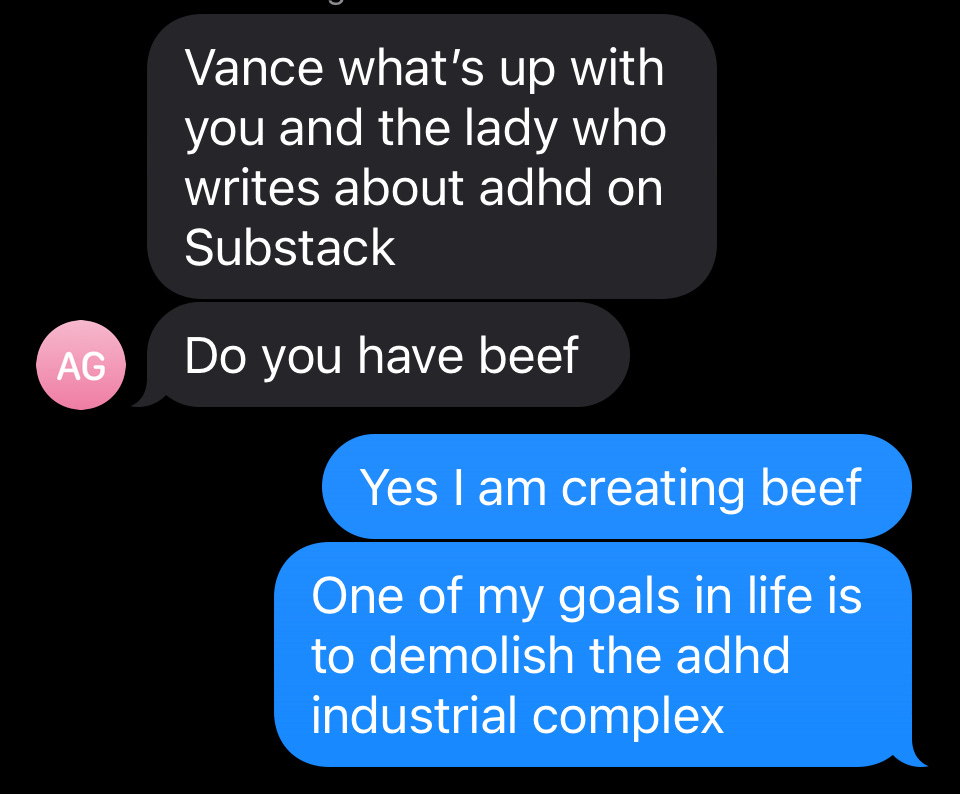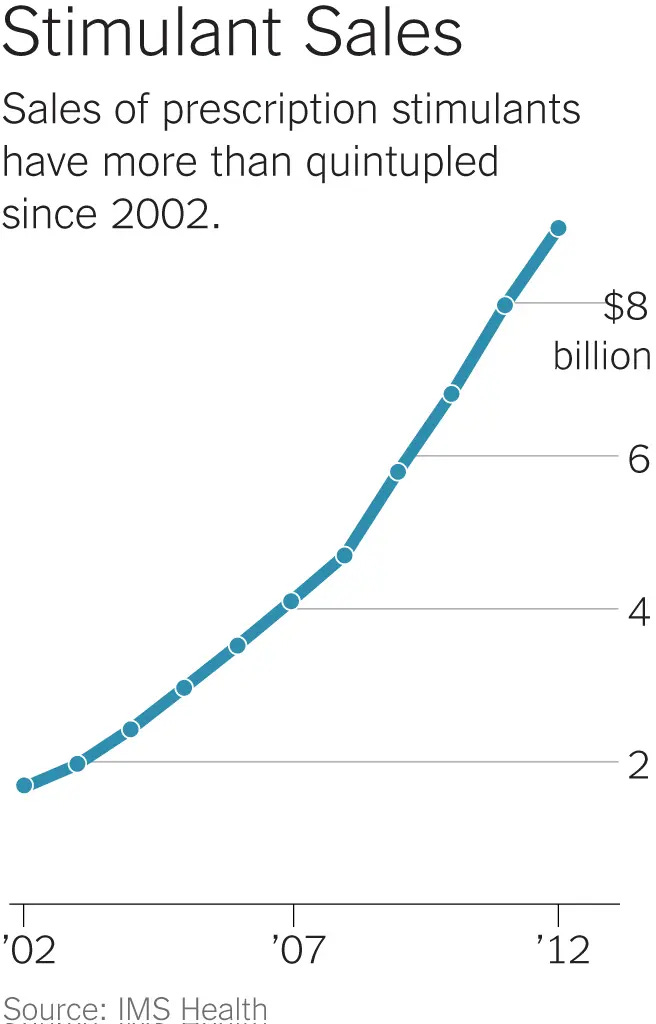You Don't Have ADHD
and neither does your child
Good morning everyone.
Abbie from Scottsdale (formerly of Denver) texted me yesterday—concerned, curious, or perhaps just bored—to ask about my recent tirades on Substack Notes regarding ADHD:
To explain a bit more: a lot of people online are now pathologizing normal behavior—things like being forgetful, selfish, or unmotivated. They’ll tell you, “No, the assignment you were supposed to turn in last Monday but didn’t? That’s not because you’re lazy or undisciplined—it’s because you have ADHD.”
I’ve talked before about how arbitrary and subjective most mental health diagnoses are. ADHD is perhaps the most glaring example. And children are harmed by this paradigm.
It’s often “diagnosed” through a short questionnaire or by asking parents and teachers to describe a child’s behavior—usually to a nurse practitioner or school counselor predisposed to see normal behavior as a condition.
If I’d been part of the standard public school and medical system as a kid, I probably would’ve been raised on Adderall rather than butter. I was ultra-talkative (shocking, right?) and constantly moving, always wanting to play cowboys and Indians rather than read about them. And my brother Deter? He was about five times more wiggly than I was. Come to think of it, maybe my parents should’ve drugged him a bit.
I jest. Deter is now a police officer and father of four.
And I’m so grateful for my parents’ intuition and general disinterest for the ADHD Industrial Complex. Their philosophy for raising rowdy boys was simple: “Go play in the woods and don’t come inside unless it’s an emergency.”
We built the sickest forts.
But if Deter and I had been diagnosed with ADHD as little boys, we would’ve been enrolled in a program that didn’t involve underground forts or tree houses—but rather:
Limits children’s opportunities: boxing them in by suggesting that because they struggle to focus on arithmetic, they’ll struggle to thrive in more advanced academic settings.
Ignores children’s natural needs: especially for young boys, who require physical activity and stimulation. Eight hours behind a desk is one of the least conducive environments for healthy development. ADHD diagnoses assume that docility is normal in children. It isn’t.
Introduces sketchy medications: psychostimulant prescriptions like Adderall, which carry serious risks: an 18-fold increase in depression, stunted growth, obesity, and poorer academic performance. Approximately 3.8 million children in the U.S. have an ADHD prescription, generating billions annually to Big Pharma.
Now we’ve got mental health influencers flooding the internet, sharing relatable stories about adult ADHD to convince the entire country that, surprise—you probably have it too.
Late for work? ADHD.
Didn’t finish that project? ADHD.
Can’t sit through a book? ADHD.
Can’t hold down a relationship? AD-freaking-HD.
The reason I say ADHD isn’t a medical condition is because it’s not one. The NIH defines ADHD as “an ongoing pattern of one or more of the following types of symptoms:
Inattention, such as having difficulty paying attention, keeping on task, or staying organized
Hyperactivity, such as often moving around (including during inappropriate times), feeling restless, or talking excessively
Impulsivity, such as interrupting, intruding on others, or having trouble waiting one’s turn”
When I read these descriptions, I don’t think developmental disorder. I think: every normal, healthy little boy I’ve ever met.
Now, if you’re an adult with these symptoms, you’re probably just TikToked out of your darn mind. Delete the socials—designed to fry your attention span—and read the Proverbs or something.





I would like to add that boys that get a lot of physical activity (get the wiggles out) actually can sit down and solve complex math problems. My boys will (rather happily) sit down to complex pre calculus and also run wild in the park building forts and such.
My name is Abbie from Scottsdale (formerly of Denver), and I approve this message.